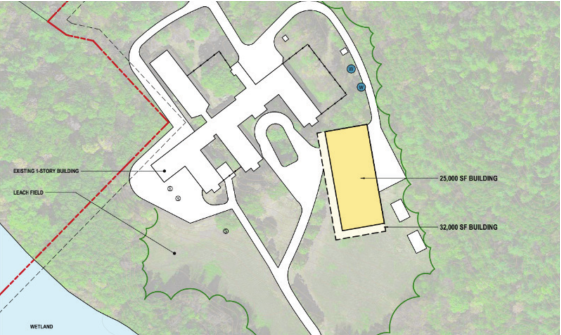The state’s new secure facility for at-risk youth won’t have more than 18 beds, as lawmakers demanded, but it will be bigger and cost more than the $21.6 million budgeted. That’s largely due to the needs of the teenagers who will be there, according to Morissa Henn, deputy commissioner of Health and Human Services.
Some residents, who can be as young as 13, are being held longer, some on serious offenses that require they stay until they can be transferred to adult court at 18, Henn said. It became important, she said, for the design team to think beyond space for just basics such as bedrooms, bathrooms and common areas to include educational and vocational programming and room to live, not just stay.
“The reality is this is going to be their home. To be too small is not ideal for any person in their living quarters,” Henn said. “You want to get it just right so it has a residential feel, so it has a highly trauma-informed feel, but also so that individuals have space to breathe when they need that. We just didn’t want to err too small on the residential end.”
The project has expanded from 25,000 square gross footage to 32,000, DHHS Commissioner Lori Weaver told lawmakers.
The department expected to seek permission from the Executive Council on Nov. 29, to use $6.5 million in unspent federal COVID-19 assistance to cover increased project costs. The money had been set aside to respond to a coronavirus surge last winter that didn’t happen.
Henn said the department confirmed it can repurpose the money to address other challenges triggered or exacerbated by the pandemic, such as mental health needs.
The Joint Legislative Fiscal Committee overwhelmingly approved the request earlier this month.
Currently, youth between 13 and 17 who are ordered held by the courts for offenses are placed at the 144-bed Sununu Youth Services Center in Manchester, either until they go before a judge or after they are committed, typically for several weeks or months, depending on the circumstances.
As the state has worked to divert juveniles from detention, into community services and mental health treatment, the building has become far bigger than needed.
Youth advocates, mental health providers, and civil rights groups resolved disagreements over the size and programming requirements this year with House Bill 49, which set aside $21.6 million to build a facility with 12 beds but space to surge to 18 if needed. Henn said the department hopes to have the new facility, which will be placed on the grounds of the state’s Hampstead Hospital, an inpatient psychiatric facility for youth, by the end of 2025.
But, the new facility must also meet the requirements laid out by the Legislature related to educational space, visitation areas and clinical care.
“We don’t come to ask for this lightly,” Weaver told the fiscal committee. “We know what was budgeted for it. But at the same time, I can’t tell you in good conscience that I can build a facility that is safe and meets those requirements with the $21 million (that was budgeted).” — ANNMARIE TIMMINS/NH BULLETIN